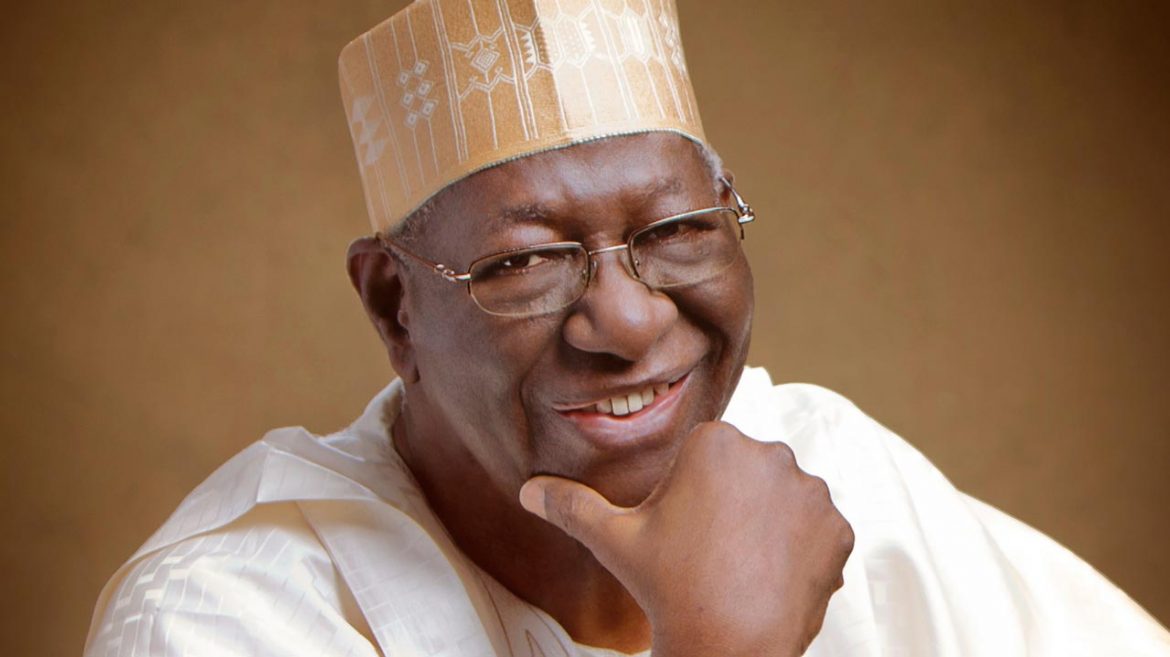By Sufuyan Ojeifo
Starting from 12.30 pm on Saturday, November 26, 2016 in the African Hall
of the International Conference Centre (ICC) in Abuja, the autobiography
of the acclaimed political godfather, Chief Anthony Akhakon Anenih, simply
titled: “My Life and Nigerian Politics” will be presented to the public on
an occasion that has been deliberately organised to reflect the mood of
the times. However, regardless of this deliberateness, the caliber of
guests that have been carefully invited has, undoubtedly, elevated the
essence of the event: to celebrate the life and times of the political
icon; and, perhaps, his expected withdrawal from active partisan
politics.
Therefore, while the Planning Committee of the event may have succeeded in
solemnising its atmospherics and nuances, the gravitas associated with the
personas of some distinguished Nigerians who would be present at the event
may have, to some extent, spun it out of control in terms of the intended
air of sobriety, which the celebrant desires. And, this should be
understandable when one considers the compact, yet impressive list of
invitees. Nevertheless, the event would not come near his 80th birthday
held three years ago, at the same venue, with pomp and ceremony, yes, with
grandeur.
But, I sincerely doubt if anybody can do much about discounting, on
occasions such as this one, the presence of the like of former head of
state, General Abdulsalami Alhaji Abubakar who would chair the ceremony;
former president, Dr Goodluck Jonathan who is a special guest; former
defence minister and foremost philanthropist, Lt. General Theophilus
Yakubu Danjuma who is the Chief Presenter of the book; the president of
Dangote group and Africa’s richest man, Alhaji Aliko Dangote; chairman of
Globacom, Otunba Mike Adenuga; and former vice president, Architect
Mohammed Namadi Sambo, among others, who are special guests. Only their
presence would serve to electrify any gathering. That is the truth.
Nothing can also diminish the status of Anenih who is the central focus of
the event, not even the planned low-key nature of it. The fact that he
has decided to put, in the public domain, pieces of information about his
participation in politics and government, which he has documented for
posterity, helps to accentuate his relevance and the seriousness of the
event. He created for himself a reputation as a taciturn politician, a
man of few words but remarkable actions and practicability, such that he
came to be widely regarded as “Mr. Fix It”. It is therefore expected that
watchers of the political scene should enthusiastically relate with his
opening up on events and developments that have shaped his individuality
in the last thirty eight years in order, perhaps, to fill in some gaps,
confirm what they have already known or get introduced to new facts.
By opening up at this time, as a godfather of sorts, since political
friends and foes are wont to refer to him as such, Anenih has purportedly
broken his own silence code. That he has resorted to documenting the
story of his participation in government and party administration is
evidence of this. He has been very reserved, neither granting press
interviews nor taking to the public space to ventilate his positions.
But, then, Anenih, political strategist and tactician, is just a good
father (read godfather) of political interactions, whose passion is to
reward loyalty and spurn disloyalty; and this he has done creditably.
Therefore, Anenih’s autobiography, from the snippets ferreted, thus far,
from it, is unapologetically and truthfully presented in a lucid prose to
sustain attention of readers who are desirous to catch up with some new
information concerning the intrigues that underpinned, for instance, the
June 12, 1993 presidential election debacle. He was the national chairman
of the defunct Social Democratic Party (SDP) on which platform, the late
business mogul and presidential candidate of the party, the late Chief
M.K.O. Abiola won the June 12 presidential poll. He is, at all material
times, well placed to talk about what happened: how Abiola won the
election; how the announcement of the results of the poll was halted
midway and the unofficial final result which saw Abiola win the election
was annulled by the regime of General Ibrahim Babangida; and how General
Sani Abacha (now late), who was Defence Secretary in the Chief Ernest
Shonekan led-Interim National Government, sacked Shonekan purportedly on
the prompting of Abiola and appropriated power rather than relinquish it
to Abiola.
How and why did Abacha get to sack Shonekan? What role did Abiola play in
the overthrow? There are so many other questions, which, as learnt, are
answered in the book. There are also many other issues that the narrative,
which traverses the entirety of Anenih’s life and times, deals with.
Members of the public, especially the politically-oriented, should
consider reading the rich account of the life and politics of a man of few
words through his singular book.
Mr Ojeifo, Editor-in-Chief of The Congresswatch magazine, sent this piece
via ojwonderngr@yahoo.com



